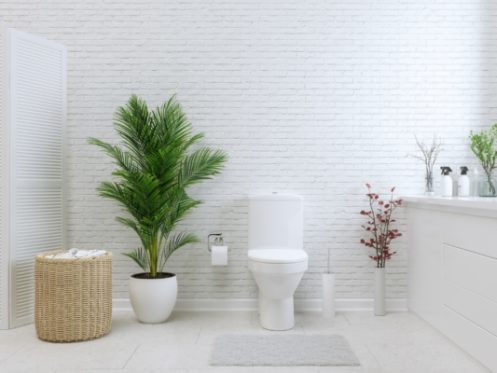The Problem With Using Flushable Wipes in Your Home
Many cultures throughout the world disdain the use of dry paper products for self-cleaning after going to the bathroom. Toilet paper rips, shreds, and often leaves a significant amount of waste behind. Although wet, flushable wipes seem like an effective solution, these products can wreak havoc on the plumbing in your Nanaimo, BC home. Following are several solid reasons to avoid ever sending flushable wipes down your commodes.
Flushable Wipes Don’t Break Down Like Toilet Paper Does
The term “flushable wipes” is actually misleading. Although flushable wipes can certainly clear your toilets, this doesn’t mean that they’re safe for residential plumbing. These products have a very long way to travel before they enter the municipal sewer system. Moreover, given that they’ll remain fully intact throughout the entire journey, their potential to cause problems is long-lasting.
All other waste that goes down your commodes is broken down by exposure and the movement of water. Both human waste and standard toilet paper start to degrade as soon as they hit the bowl. Although many flushable wipes have a soft, cotton-like appearance, they’re actually comprised of polyester, polypropylene, polyethylene, and many other durable, non-degradable materials.
To combat their fast-growing reputation for causing plumbing problems, there are a number of flushable wipe manufacturers who only use non-woven, natural fibers in their products such as wood pulp. However, even these wipes are reinforced with plastics or other polymers. This is done to ensure that they hold up well during use. It’s also why they remain fully intact while traveling through plumbing systems.
The fact that flushable wipes don’t break down upon entering your plumbing system makes them a major risk factor for blockages until they’ve exited the system entirely. Unfortunately, these wipes can get caught on snags in aging pipes within your home. They can also get caught on a number of obstructions in exterior pipes as they make their way to the sewer main.
Build-ups of Flushable Wipes Can Cause Whole-House Back-ups
When flushable wipes get caught or snagged in aging pipes, they create barriers that other solid waste cannot flow through. This can happen inside of your home, or it may happen in outdoor areas where aggressive weeds or tree roots have encroached your exterior plumbing. Having an increasingly large wall of blocked debris will eventually prevent waste from exiting at all. When this happens, raw sewage will start backing up into your home through multiple drains.
Many flushable wipe manufacturers argue that their products dissolve at rates that are comparable to those of toilet paper. However, plumbing professionals routinely break through and remove blockages caused by flushable wipes that are months and even years old. This means that if you have a developing build-up of wipes in your plumbing system, you cannot wait for this issue to gradually resolve itself.
Cumulative Use of These Products Can Cause Major Sewer Problems
There’s another major issue that flushable wipes are known to cause: fatbergs. Fatbergs are massive, iceberg-like formations that develop in municipal sewer systems as used wipes accumulate. The tacky, sticky coatings that these wipes attract cause them to adhere to one another. Flushable wipes are known for attracting fats, oils, human waste, and other nearby substances. Once fatbergs have formed, these mounds disrupt the normal flow of sewage and create problems for all homeowners within the vicinity. Thus, eschewing flushable wipes in favor of a safer and more sustainable self-care solution is both better for your home and better for the homes of everyone around you.
There Are Far Cheaper and Easier Ways to Get Clean
Flushable wipes cost a mere pittance when compared to the cost of fixing the problems that they cause. If you use flushable wipes in your home, you have a high likelihood of experiencing major plumbing blockages, a whole-house back-up, and widespread water damage.
Fortunately, there are cheaper, easier, and far safer ways to get clean after going to the bathroom. For instance, you can upgrade your toilets to models with built-in bidets. You can also invest in low-cost bidet attachments that work with your current commodes. Bidets eliminate the need to continue paying for disposable products to supplement toilet paper. They’re also unlikely to cause plumbing system blockages or sewer issues like fatbergs.
We proudly serve residents of Nanaimo, BC and the surrounding area. We offer gas furnace and boiler installation, maintenance, and repairs. We also provide heat pumps, tankless water heaters, leak detection, and residential plumbing service. If you’ve got plumbing problems caused by flushable wipes, we’ve got answers. Call Twin Peaks Plumbing, Heating & Gas today to schedule an appointment.

